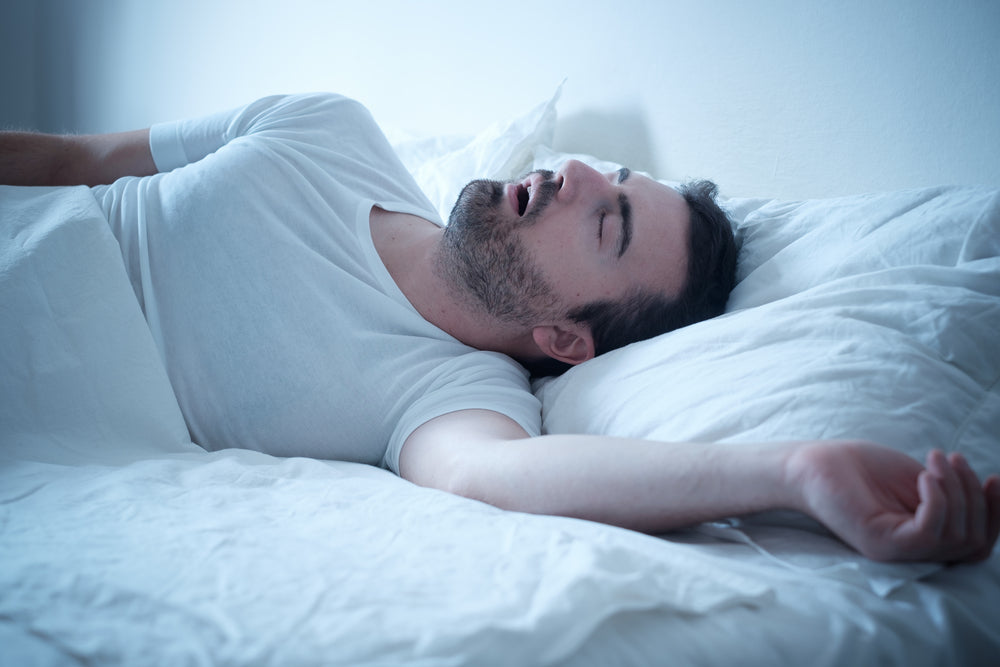Even the idea of sleep apnea is enough to drive people to potentially hazardous Google searches. In fact, interest in sleep apnea has skyrocketed in recent years, leading to an explosion in posts for “natural home remedies” or “secrets to beat sleep apnea.” But sleep apnea is a common medical malady that is easily treatable if you consult the right professionals and have good, medically correct information at your fingertips.
Well, worry no more. We’ve debunked the top 5 most common sleep apnea myths to help you decide if taking a home sleep test is the right step for you.
Myth 1: Sleep Apnea Only Affects the Obese
Though there have been significant reports of sleep apnea in those with a high Body Mass Index (BMI), that doesn’t change the fact that there are a large number of people with sleep apnea who are an average weight.
Sleep apnea does not discriminate in size or shape, gender or lifestyle. It can also be caused by large tonsils or adenoids, a bigger tongue, a deviated septum, a recessed or small chin, and even certain types of esophageal (throat) constructions that can cause obstructions during sleep. Also, sleep apnea can affect those who are older, regardless of their weight or BMI.
Myth 2: I Know I Have Sleep Apnea Because I Snore
Much like any other medical malady, snoring is just one of several symptoms of sleep apnea and doesn’t necessarily mean that you should go diagnosing yourself. Snoring only indicates that your airway has a temporary blockage that your body can naturally overcome, but not that it’s fully obstructed, which is the true cause of sleep apnea.
While snoring may be concerning (especially for your partner), you should consider setting up a home sleep test if you have any of these potentially more worrisome side effects: waking up with headaches, waking up gasping for breath or choking, waking up frequently at night, feeling panicked when you wake up, or feeling exhausted after a full night of sleep.
Myth 3: If I Have Sleep Apnea, My Sleep Will Get Worse Because I’ll Have to Wear a CPAP
CPAP (Continuous Positive Airway Pressure) machines are the most common treatment for sleep apnea because they truly work. Providing the body the extra air pressure it needs to overcome obstructions will result in higher quality, better overall sleep.
Though CPAP and AutoPAP machines are the most common and effective methods, there are other treatment options to consider. If you are diagnosed with mild sleep apnea, the remedy can be as simple as weight loss or simple changes to your lifestyle. Other sleep apnea treatment options outside of CPAP equipment can vary depending on your sleep apnea’s severity and your lifestyle.
Myth #4: Having Sleep Apnea Isn’t That Big of a Deal, I Don’t Need Therapy
Sleep is one of the most important things humans do to keep themselves healthy. While the idea of CPAP therapy or other options may be concerning, they are better than the potential downfalls of continuing with untreated sleep apnea. Studies show that poor sleep, especially the kind of interruptions caused by sleep apnea, can increase your risk of high blood pressure, heart disease, stroke, and even cancer.
Not only that, but poor sleep inhibits your ability to do everyday tasks, like driving, safely. Sleep apnea will not get better on its own, so take the steps you need to treat your sleep apnea by contacting up to set up a home sleep test and have your results analyzed by a board certified sleep physician.
Myth #5: Sleep Studies Are Expensive and Uncomfortable, So My Results Won’t Be Accurate
It is true that sleep studies can be expensive and uncomfortable, but they are often worth the accurate results for those who suffer from other sleep disorders like insomnia, narcolepsy, or restless leg syndrome.
When it comes to sleep apnea, those with a high probability can qualify for an at-home sleep test. These happen in the comfort of your own home, so you control the test and have the results evaluated by a board-certified sleep physician. Home sleep tests are also by far the more affordable option and, after diagnosis, can lead to the necessary prescription needed to receive a CPAP or AutoPAP machine.
While these are only a handful of the myths associated with sleep apnea, we hope they’ve shed some light on the condition and helped relieve some anxiety about available treatments.
Sleep is an essential part of life-long health and happiness, so if you feel as though you’re at risk for sleep apnea, contact your physician to discuss your options.

